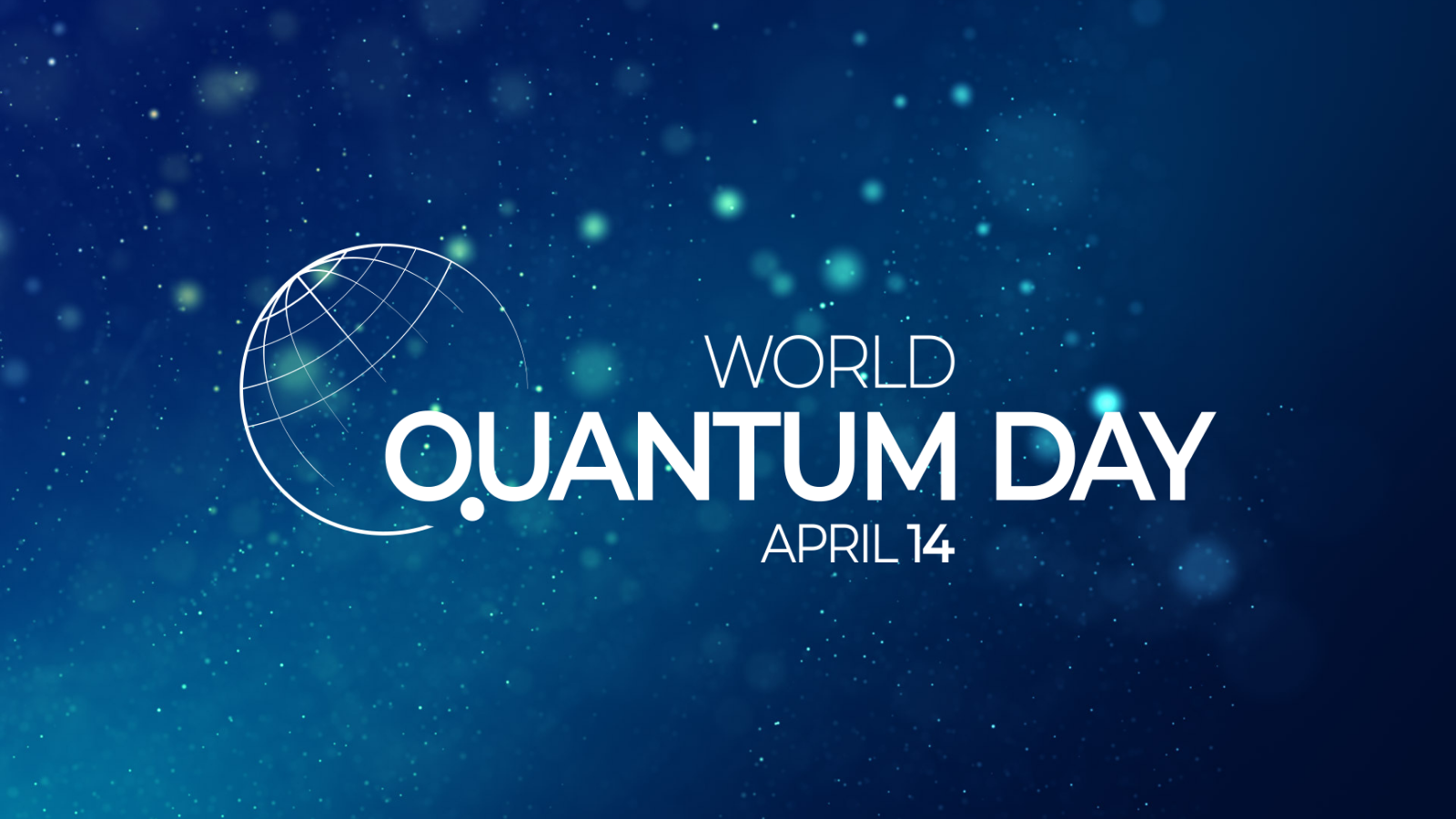Today, on 14 April, we celebrate World Quantum Day – an international initiative launched by scientists from more than 65 countries to promote public understanding of quantum science and technology worldwide. The date – “4.14” -- marks the rounded first 3 digits of Planck’s constant, a crucial value in quantum mechanics that is used to describe the behaviour of particles at the subatomic level.
Officially launched in 2022, World Quantum Day already comprises more than 300 events held in 193 cities in 44 countries on 5 continents in 17 different languages. Scientists, engineers, educators, communicators, entrepreneurs, technologists, historians and artists all over the globe organise their own activities, such as outreach talks, exhibitions, workshops and panel discussions, to engage the general public with quantum science and explain how quantum technologies work and how they can impact our everyday life.
From quantum mechanics, quantum gravity, optics and information science to quantum computing, metrology and engineering, all domains of quantum science are celebrated, alongside their history, mathematical foundations and practical applications.
But what is quantum and why do we mark the date?
“Quantum” comes from the Latin word “quantus”, meaning “how much”/”of what size”. It is the smallest amount or unit of electromagnetic energy that can be measured. In short, quantum physics is the study of the smallest building blocks that make up our Universe. It seeks to describe the properties and behaviour of matter and energy at the most fundamental level. If you want to understand how atoms hold together, how electrons move through a computer chip or how magnets work, you will need to use quantum physics. A quantum-based theory can also help explore the origin of the matter-antimatter asymmetry or the nature of dark matter and dark energy – phenomena that cannot be explained within the Standard Model.
Despite being recognised as the theoretical basis of modern physics, quantum science traces its origins back to the early 20th century when the German physicist Max Planck made a seemingly contradictory assumption that energy exists in individual units, which led to the first notion of quantum theory. Further investigations by Niels Bohr, Albert Einstein, Erwin Schrödinger and Richard Feynman made major contributions to the development of quantum mechanics, bringing a new dimension to the world of science.
As well as expanding our knowledge beyond the classical concepts, quantum physics lies at the core of some of the most profound technological advances. To give just a few examples, transistors, LEDs, lasers, GPS and medical imaging all rely on concepts of quantum physics. Quantum technologies also offer the potential to impact many other areas in the future: they hold great promise for improving how we secure communication and process information, for advancing the sensitivity of detectors and sensors and for changing the way we approach computing.
For the high-energy physics community, applications of quantum technologies could mean new advantages and possibilities for track reconstruction, simulation and event classification and the computing needs of CERN’s world-leading research infrastructure – the Large Hadron Collider (LHC) and its successors, the HL-LHC (High Luminosity Large Hadron Collider) and possibly the FCC (Future Circular Collider).
“Quantum science evolved from a hypothesis, a revolutionary idea, to become one of the foundations of modern physics that has changed the way we think about the world forever”, -- says Alberto Di Meglio, coordinator of the CERN Quantum Technology Initiative (QTI). “Looking into the future, we can most certainly say that quantum science and technology will be a central cross-disciplinary field with a major impact on key societal and technological challenges. It is therefore important that we explore the potential of this breakthrough field and raise awareness about it today, pushing the boundaries of knowledge and technology. World Quantum Day is a great occasion to do this.”
In 2022, CERN QTI already took part in the World Quantum Day celebrations by developing and hosting the event management website and organising a special scientific symposium at CERN. During the event, talks outlined the early days of quantum science at CERN and what those pioneering efforts mean for modern research.
To mark this year’s celebrations, the first-of-a-kind quantum workshop for high-school students will be held at CERN to introduce the young generation to the fascinating field of quantum science and promote early quantum physics education. Split into two parts, an introductory lecture and a hands-on session, the workshop will give a first insight into the concepts of quantum mechanics and explain how quantum science underpins the physical world around us and facilitates technological innovation. The event will be organised in close collaboration with Finland’s QPlayLearn initiative, which uses innovative interactive tools to communicate the main aspects of quantum physics in a clear and accessible way to people of various ages and backgrounds.
To discover more about World Quantum Day, learn how to engage and find events taking place near you, visit: https://worldquantumday.org

